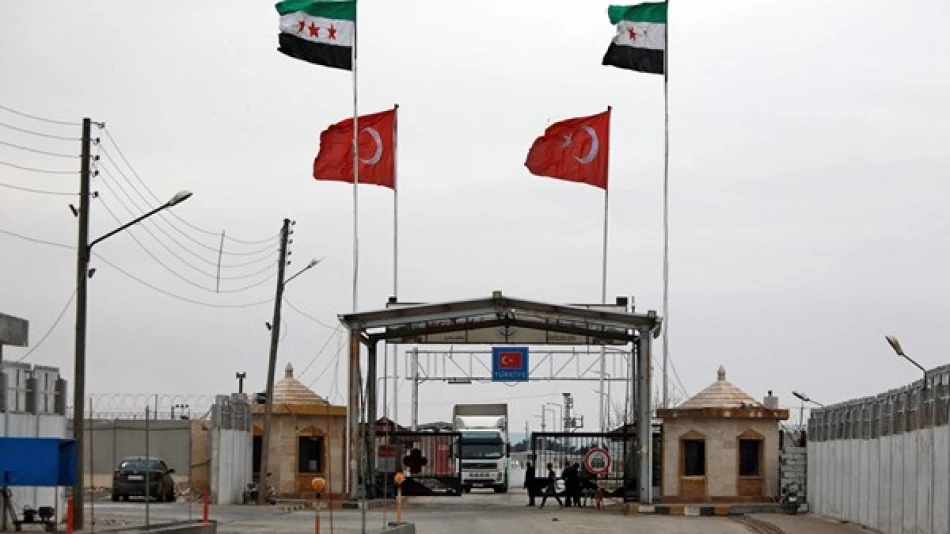
Turkey and Syria Explore Strengthening Security Cooperation
Turkey Moves to Shape Syria's Security Architecture as Assad's Fall Creates Power Vacuum
Turkey is positioning itself as the primary security partner for Syria's new government, with Interior Minister Ali Yerlikaya meeting his Syrian counterpart Anas Khattab in Ankara to discuss comprehensive security cooperation, training programs, and the potential return of Syrian refugees. The high-level diplomatic engagement signals Turkey's strategic intent to influence Syria's post-Assad institutional framework while addressing its own refugee burden.
Security Partnership Takes Center Stage
The Monday meeting between the two interior ministers focused on enhancing security cooperation and providing necessary support to Syria's Interior Ministry and its units. Yerlikaya outlined plans for experience sharing and intensive training programs, positioning Turkey as the mentor for Syria's emerging security apparatus.
This represents a significant shift from the proxy warfare that characterized much of the Syrian conflict. Turkey, which backed opposition groups throughout the civil war, now finds itself in a position to directly shape the institutional development of a post-Assad Syria.
The Refugee Question: A Win-Win Calculation
Both ministers emphasized cooperation on the return of Syrians under temporary protection in Turkey—a politically sensitive issue that has strained Turkish domestic politics. With approximately 3.6 million Syrian refugees, Turkey hosts the world's largest refugee population, creating economic pressures and social tensions that President Erdogan's government has struggled to manage.
The timing is strategic. As Syria's new administration works to establish legitimacy and control, facilitating refugee returns could provide both countries with political benefits: Turkey reduces its refugee burden while Syria gains returning citizens and potential reconstruction workforce.
Institutional Rebuilding: Turkey's Soft Power Play
Turkish Vice President Cevdet Yilmaz's separate meeting with Khattab underscored Ankara's broader ambitions. Yilmaz emphasized the importance of enhancing security in Syria to establish internal peace and support economic development—language that suggests Turkey views security cooperation as a gateway to broader economic influence.
This approach mirrors Turkey's successful soft power projection in other regions, from Somalia to the Balkans, where security partnerships have evolved into deeper economic and political relationships.
Regional Implications and Strategic Calculations
Turkey's rapid engagement with Syria's new government reflects broader regional realignments. Unlike the cautious approaches of Gulf states or European powers, Turkey is moving quickly to establish facts on the ground, potentially securing preferential access to reconstruction contracts and political influence.
The emphasis on "comprehensive governance" that includes all segments of society suggests Turkey is pushing for inclusive institutions—partly to ensure the rights of Syria's Turkmen minority and to prevent the kind of sectarian governance that could destabilize the region further.
Challenges Ahead
While Turkey's proactive approach offers opportunities, significant challenges remain. Syria's new administration must balance multiple international influences, including Iran, Russia, and Western powers, each with their own agendas. Turkey's deep involvement in Syrian security structures could provoke pushback from other regional players who view such influence as threatening their own interests.
Moreover, the success of refugee returns depends on Syria's ability to provide security and economic opportunities—outcomes that remain uncertain despite the optimistic diplomatic rhetoric.
Most Viewed News

 Layla Al Mansoori
Layla Al Mansoori






